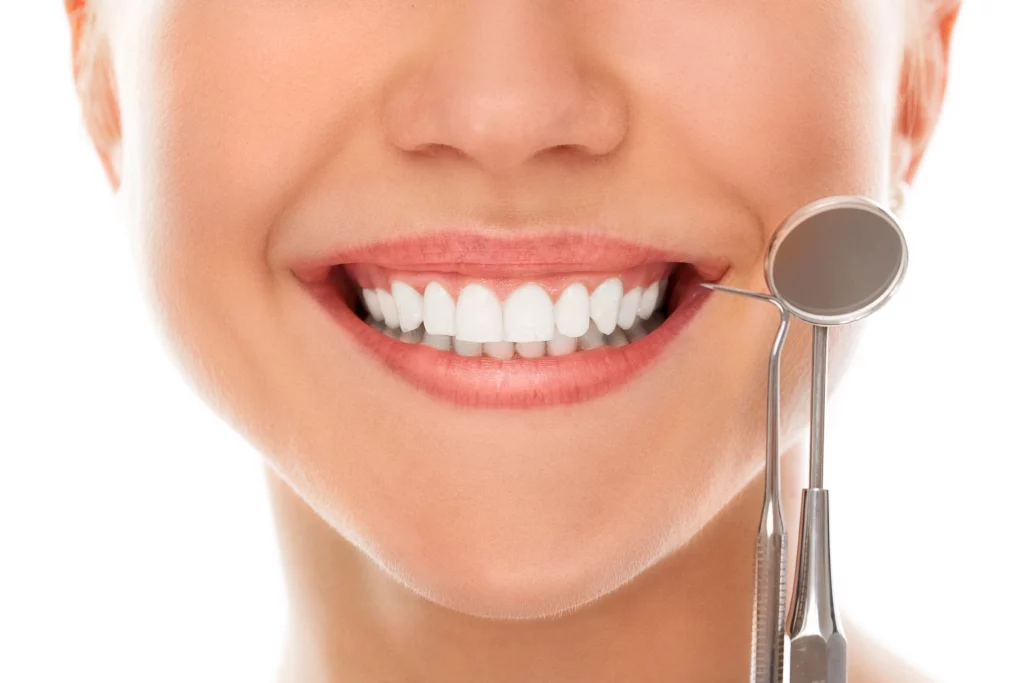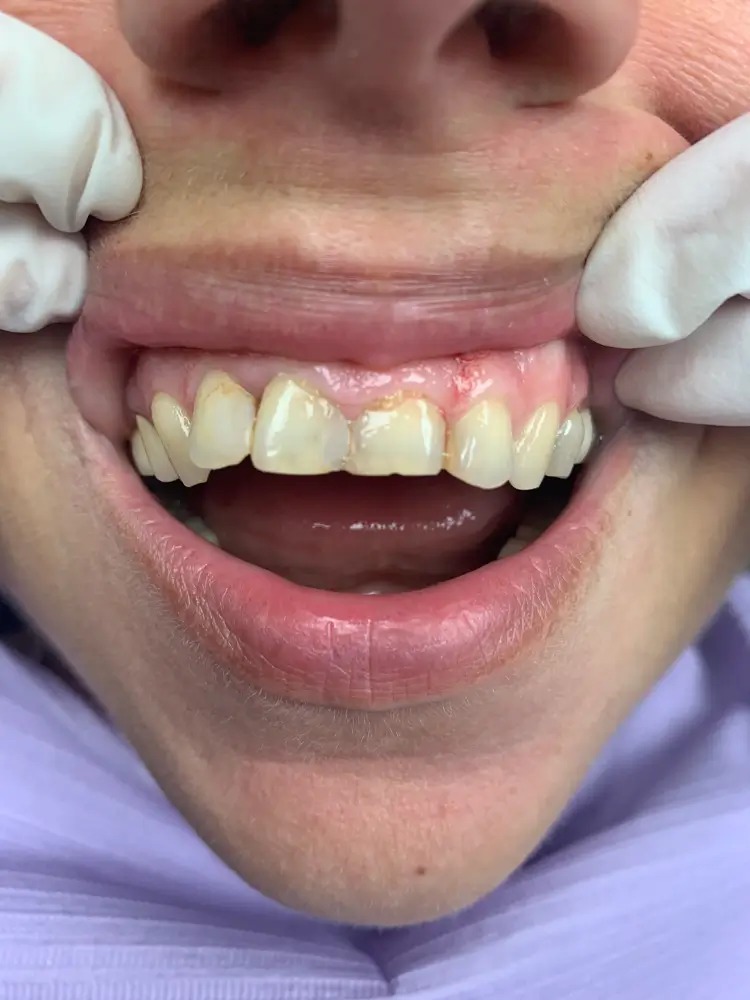
Clifton Dentist - Dental Crowns
Need a consult?

Dental anxiety affects a significant portion of the adult population in the United States, with estimates suggesting that around 75% of adults experience fear or discomfort when it comes to dentistry. While this figure is an approximation, it underscores the widespread apprehension associated with dental procedures.
Many individuals only seek dental care when they encounter a dental emergency, delaying necessary treatment and resulting in more extensive dental work. However, by prioritizing regular dental visits and adopting a cautious approach, individuals can transform dental appointments into a routine part of their oral care regimen rather than an anxiety-inducing event.
Dental crowns play a crucial role in maintaining oral health, restoring the function and appearance of damaged teeth, and preventing the need for complex dental procedures such as extractions, root canals, or implants. By understanding the dental crown process, individuals can alleviate their fears and feel more comfortable during their dental visits.
Doctor
Dr. Doktorman offers full range of services in the scope of general dentistry, such as cosmetic composite fillings, root canals, removable dentures of multiple designs, crown and bridges, surgical services and gum treatment. Dr. Doktorman completed implant residency in NYU. All phases of implant dentistry are performed in our office. We offer implant placement,variety of implant supported restorations both fixed and removable. Our office offers a FREE consultation for the patients interested in implant placement and restorations.

Testimonials
Trustindex verifies that the original source of the review is Google. I have been to many dentists throughout the years, mainly because as a kid too young adult, I did not take good care of my teeth, so now im paying the price. This is by far the best dentist i have ever been to, he redid the work of a bad crown from another dentist and also did an implant for me, during the entire process of both procedures during different time frames he made me feel comfortable and took his time with me, answering all my questions. It's refreshing to have a dentist who doesn't rush from door to door, taking in multiple patients at once. After the implant tooth was put in, if I needed more adjustments, he let me know to call, and he will make time to get it adjusted for me. Also, so far, appointments have been very spot on, at most 5 - 10 min wait, but sometimes I get in even earlier. This is my main dentist now for all work going forward.Trustindex verifies that the original source of the review is Google. I’ve been a regular patient of Dr. Doctorman for over a decade, and I can confidently say he’s an exceptional dentist. His expertise and attention to detail have resolved all my dental issues, and his commitment to thorough, personalized care is unmatched. I consistently receive top-notch treatment during my regular checkups, and his friendly demeanor makes each visit pleasant. Dr. Doctorman is the ultimate professional in his field, and I highly recommend him to anyone seeking reliable and effective dental care.Trustindex verifies that the original source of the review is Google. Excellent service, always patient with me to ease my nerves during any process and kind staff. Highly recommend!Trustindex verifies that the original source of the review is Google. I’ve been going to Dr. Doktorman for a few years now, and he’s been great. He’s really good at what he does and always makes sure I understand what’s going on with my teeth. I used to feel a little nervous about going to the dentist, but he’s so calm and friendly that it’s not a big deal anymore. The office is nice and clean, and the staff is always polite and helpful. I highly recommend Dr. Doktorman if you’re looking for a dentist who’s professional and easy to talk to. He’s been a great dentist, and I’m extremely happy with the care that I’ve received.Trustindex verifies that the original source of the review is Google. Dr Doktorman has been my dentist for nearly 10 years. He is always very courteous and professional. I always recommend him to friends and family.Trustindex verifies that the original source of the review is Google. I have been Dr. Dokterman's patient for years and will continue to be. From typical cavity fillings to root canals his work is top notch. He and his staff are also welcoming and professional.Trustindex verifies that the original source of the review is Google. Dr. Doktorman has great customer service and he and his dental staff do wonderful dental work!Trustindex verifies that the original source of the review is Google. Excellent clinic. I am a patient of Doctorman for the last five years, his very profesional and a good doctor. Staf its very helpful and friendly I would recommend Prestige dental to all my friends and family.Trustindex verifies that the original source of the review is Google. I was referred by a good friend. I Never have to wait later than my appointment time. The office is very clean and the staff is amazing. Dr. Doktorman is very informative and knowledgeable, he explains everything in details. I can’t wait to go to my next cleaning.Trustindex verifies that the original source of the review is Google. I can't say enough great things about Dr. Doktorman! He is incredibly caring and truly goes above and beyond for his patients. I always appreciate how he follows up after appointments to ensure everything is going well—it's clear he genuinely cares about his work and his patients' well-being. He is honest, trustworthy, and takes the time to listen to my concerns, making me feel heard and valued as a patient. I trust him wholeheartedly, not just with my care but with my entire family's as well.

Information
Dental Crowns as Restorations and Cosmetic Enhancements. Dental crowns serve both restorative and cosmetic purposes, addressing conditions that compromise tooth health, stability, and appearance. Common scenarios that may require dental crowns include:
INFORMATION
These crowns are popular for their natural color and texture, which match natural tooth enamel. They are highly preferred for front teeth restorations due to their excellent aesthetic qualities.
These crowns combine a porcelain outer layer with a metal base, providing both strength (from the metal) and a more natural appearance (from the porcelain). They are stronger than porcelain alone and are often used for both front and back teeth.
Known for their strength and durability, zirconia crowns are made from a type of ceramic that can withstand the wear and tear of back teeth while also providing an aesthetic appearance suitable for front teeth.

Information
Before

After

Information
The temporary crown is removed, and the new permanent crown is tried on to assess its fit and color match. If everything looks satisfactory and the patient is happy with the outcome, the permanent crown is cemented into place. Post-operative instructions and guidelines on proper crown care are provided, emphasizing the importance of maintaining good oral hygiene.
After a day or two, patients can start flossing between their porcelain crowns, ensuring they are clean and free from food particles to prevent gum inflammation. Patients are encouraged to reach out to the Dr.Edward Doktorman team for any questions or concerns regarding porcelain crowns or dental work in general. Understanding the dental procedures being performed on one’s teeth helps alleviate fear and discomfort associated with dental work.
Determining whether you need dental crowns involves assessing your dental health and considering several factors related to the condition of your teeth. Here are key points to help you decide if dental crowns might be the right solution for you:
After tooth preparation, the dental staff creates an impression of the tooth and the surrounding teeth. This impression is then sent to a dental fabrication lab, where the crown will be crafted in the desired material. Depending on the fabrication process, patients may leave their first appointment with a temporary crown.
If a patient has a temporary crown, a follow-up appointment is scheduled to replace it with the permanent crown. Before cementing the permanent dental crown in place, the dentist ensures its fit and appearance by placing it on the prepared tooth. This step is crucial, as a poorly fitting crown can significantly reduce its lifespan. If the dentist confirms that the crown is free of flaws and the patient approves of its fit and appearance, the crown is cemented into place.
After the placement of a dental crown, patients receive information and advice on how to maintain their dental restoration. It is normal to experience some sensitivity in the days and weeks following crown placement due to the removal of natural tooth material, which brings the nerves closer to the tooth surface.
Over time, this increased sensitivity will subside. Proper oral hygiene practices, including brushing twice a day and flossing using traditional floss or interdental cleaners, are crucial for maintaining the crown and gum health. Patients should be cautious when flossing between teeth with crowns, avoiding pulling the floss away from the gums to prevent potential loosening or dislodgement of the dental crown. Instead, drawing the floss through the teeth when moving to the other side of the tooth is recommended.
Certain foods should be avoided, as even though some dental crowns are more resilient than others, no crown is fracture-proof. Dentists may caution against consuming hard foods, sticky substances, and tough foods. Individuals who experience bruxism (teeth grinding) may receive specific recommendations regarding the type of dental crown material to minimize potential damage. Depending on the crown material, dentists may also advise against excessively hot or cold foods and drinks.
Indications
Contraindications
Dentists can offer same-day crowns by utilizing the latest technologies to streamline the process. Traditional steps involving impressions and fabricating the crown in a dental lab are replaced with 3D-imaging technology. A highly accurate digital scan of the teeth is created, which is then sent to a computer-aided manufacturing (CAM) device to fabricate the crown in the patient’s chosen material. This method enables dentists to create and place a crown all in a single visit.
While same-day crown options are available, most crown placements typically require two or three appointments. During the first appointment, the tooth is prepared, and impressions are taken. The patient returns for a follow-up visit, usually several weeks later, to have the permanent crown placed.
Different types of crown materials necessitate varying amounts of tooth enamel removal. This process ensures the crown placement is strong and stable. On average, approximately 65-75% of the tooth enamel is removed. Although this might sound like a significant amount, it is essential to remember that the average thickness of tooth enamel is only around 2.5 mm.
Commonly cited information suggests that dental crowns have a lifespan of 5 to 15 years. However, it is important to note that lower-quality crowns contribute to these lower averages. When high-quality materials are used by experienced practitioners and patients adhere to necessary precautions to extend the life of their crowns, dental crowns can last upwards of 30 years.
Having a dental crown placed is typically associated with the same level of discomfort as having a dental filling performed. Dentists may administer local anesthesia and offer conscious sedation to alleviate any pain or discomfort.
Estimating the cost of dental crowns can be challenging due to various factors. The cost can vary based on the materials chosen and the expertise of the dental practitioner. As a general estimate, patients can expect to pay somewhere between $1,100 and $3,700 for a dental crown.
Before getting a dental crown, it’s important to discuss your full medical history with your dentist, as certain conditions or medications can affect the procedure. Whether you’re opting for a tooth crown, cosmetic crown, or other types of dental crowns, be sure to understand the materials used, especially if you have allergies or sensitivities. Carefully follow all aftercare instructions to ensure the crown’s durability and avoid complications. If you notice any discomfort, sensitivity, or other issues following the procedure, contact your dentist promptly. Regular check-ups are essential to monitor the condition of your dental crown and maintain overall oral health.
Proper care after receiving a dental crown is crucial to ensure its longevity and maintain oral health. Follow these tips:
By following these care guidelines, you can help ensure the success and longevity of your dental crown.
Dr. Doktorman is in-network with many major insurance providers, including:
We work with numerous other plans as well. If you have any questions about your dental coverage, we’re happy to assist you.
Dr. Edward Doktorman, DDS, has been consistently recognized by the Consumers’ Research Council of America for his excellence in family, cosmetic, implantology, and general dentistry, earning multiple “America’s Top Dentists” awards from 2014 to 2017.
List of Certificates:
FAQ
A dental crown may be necessary in various situations, including:
Protecting a weak tooth: A dental crown can prevent a weak tooth, such as one affected by decay, from breaking or fracturing. It provides structural support and stability to the tooth.
Restoring a broken or worn-down tooth: If a tooth has been severely broken or worn down, a dental crown can restore its shape, function, and aesthetics. It helps strengthen and rebuild the damaged tooth structure.
Supporting a tooth with a large filling: When a tooth has a significant filling, especially if there is minimal natural tooth structure remaining, a dental crown can provide additional support and prevent further damage.
Anchoring a dental bridge: Dental crowns are used to hold a dental bridge in place. They serve as abutments, anchoring the bridge to the adjacent teeth and restoring the gap left by a missing tooth.
Covering misshapen or discolored teeth: Dental crowns can be used to improve the appearance of misshapen or severely discolored teeth. They can enhance the symmetry, size, and color of the teeth, creating a more harmonious smile.
Covering a dental implant: After a dental implant is surgically placed in the jawbone, a dental crown is attached to the implant to replace the missing tooth. It restores both the appearance and function of the natural tooth.
Permanent crowns can be made from different materials, including:
All metal: Metal crowns are typically made of gold alloy, other alloys like palladium, or base-metal alloys such as nickel or chromium. They are highly durable, resistant to wear and tear, and rarely chip or break. However, their metallic color may be a drawback, making them more suitable for molars.
Porcelain-fused-to-metal (PFM): PFM crowns combine the strength of metal with the aesthetic appeal of porcelain. They can be color-matched to adjacent teeth, but the porcelain portion may chip or break over time. The metal substructure may also show as a dark line, particularly near the gum line if gums recede. They are commonly used for both front and back teeth.
All resin: All-resin crowns are cost-effective but less durable than other types. They are more prone to wear and fractures over time, making them less suitable for long-term use.
All ceramic or all porcelain: These crowns provide the best natural color match and are suitable for individuals with metal allergies. They offer excellent aesthetics but are not as strong as PFM crowns and may cause slight wear on opposing teeth. All-ceramic crowns are often preferred for front teeth.
Temporary crowns are made in the dentist’s office, usually using acrylic or stainless steel materials. They serve as a temporary restoration until the permanent crown is fabricated in a dental laboratory. Permanent crowns are custom-made to ensure an accurate fit and optimal aesthetics.
The lifespan of a dental crown varies, but on average, they can last between 5 and 15 years. The longevity of a crown depends on factors such as the amount of wear it experiences, adherence to good oral hygiene practices, and personal habits. Avoiding habits like teeth grinding or clenching, chewing on hard objects, biting nails, and using teeth to open packaging can help extend the lifespan of a dental crown. Regular dental check-ups and maintenance are also essential for monitoring the condition of the crown and addressing any potential issues.
By recognizing the importance of dental crowns and understanding the process involved, individuals can overcome their dental anxieties and make informed decisions regarding their oral health.
Regular dental visits, proactive care, and early treatment can prevent the need for extensive dental work.
Need a consult?